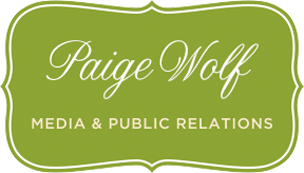The Buzzfeed headline read: “A bathroom at Calgary’s airport became ground zero for an act of heroism when an anonymous do-gooder blessed it with a box of tampons.”
As the story goes, a frustrated menstruator at a Canadian airport left a box of Tampons along with a note in the bathroom. A Reddit user posted a photo of the note:
“None of the tampon vending machines work in this area. So I was forced to buy this $15 box from Relay (airport retailer.) Not acceptable! Please take one if you need one.”
The airport shop was marking up the average price of a box of tampons by 300%. But after the image of the photo went viral on Reddit, a verified Calgary airport account replied saying the price would be dropped to $6.25 “effective immediately.” They also filled all the vending machines in the restrooms.
This was the perfect example of an anonymous good deed leading to unexpected change. In fact, some faiths would place this among one of the highest levels of giving.
In the Jewish faith, we recognize eight levels of Tzedakah or “charity.” The second highest level is defined as giving anonymously, where the recipient does not know the giver and vice versa. Receiving mutually anonymous tzedakah allows for an exchange devoid of ego or feelings of inferiority. (The highest level is defined as helping someone to become self-sufficient, an action that could be applied to many of the stories in this blog series).
Making Small Change in the Classroom
At a public elementary school in Holliston, Massachusetts, parent Janna Said was alarmed by the cases of antibacterial wipes entering the school building in the arms of generous and well-intentioned parents. She knew these harsh chemicals were not necessary for routine cleaning and can trigger asthma, allergies, and other health concerns.
I have dealt with the same concerns at my own kids’ school and handled it by offering to just buy the class a case of safer nontoxic wipes. But Janna had a bigger idea that could benefit the whole school.
Even after coming to an agreement with the school principal and nurse that harsh products shouldn’t be used in classrooms, the message didn’t fully make it to all the teacher’s back to school wish lists.
At that point, Janna just wanted them out of the building. So she had an idea – offer an exchange service. She knew from experience that products like this could be returned for store credit, so she gathered a team of parent volunteers to be classroom ambassadors.
There being a staff of 40 teachers, I also know I couldn’t do it alone. I contacted the PTO parent volunteer coordinator and she immediately put together a Sign-Up Genius for parents to sign up to be a certain teacher’s exchange ambassador.
“Because they wouldn’t have a receipt, I had to find stores that sold the conventional ones as well as the safe ones so an exchange could occur. I suggested they take the wipes back to Target and swap out for Better Life wipes or Shaw’s grocery store and swap for Sun & Earth wipes – which happened to be cheaper per wipe than the toxic ones!”
Janna wasn’t expecting permanent change to happen overnight, but this got the ball rolling in her town.
If You Have Five Minutes:
The great thing about many of the items in this chapter is that they literally took only a few minutes. But since inspiration may not always strike immediately, there are a wide variety of Web sites and apps that can help inspire you to do good deeds throughout your day!
- Litterati is a global community app that identifies, maps, and collects litter throughout the world, one piece at a time. The company is working to build the world’s largest database of litter. Geotags provide insight into problem areas, while keywords identify the most commonly found brands and products. This data will be used to work with companies and organizations to find more sustainable solutions. Through the use of social media and the data collected from individuals picking up litter, they hope to find ways to work with brands, cities and government organizations to prevent litter from ever reaching the ground.
- Your local city services app. Here in Philadelphia, we have a Philly 311 app which allows service requests (potholes, dangerous conditions, graffiti) to be submitted directly to our local government, where it is instantly routed to the appropriate department. Typically, service requests are responded to quickly and efficiently, and users are notified the moment they are resolved.
- The Natural Resources Defense Council (NRDC) All In Community App allows environmentally conscious citizens to share actionable ideas, crowdsource new resources, and mobilize activists. The app is even sorted into time-pegged actions from one minute to “deep dives.”
This post is part of my Budget Activist series. Thank you for reading and sharing!













